MercoPress. South Atlantic News Agency
Tag: Rural Association (ARU)
-
Thursday, January 29th 2026 - 00:01 UTC
Uruguay’s farm sector warns low dollar threatens jobs as peso strength squeezes exports
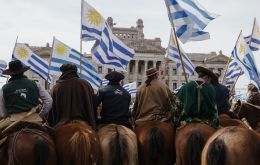
Uruguay’s Rural Association (ARU) is warning that the slide in the U.S. dollar is pushing the farm sector into a “critical situation,” arguing that while a stronger peso may feel beneficial for people paid in local currency, the broader impact can be job losses in export-oriented activities.
-
Wednesday, August 31st 2022 - 10:44 UTC
Expo Prado, Uruguay's largest agricultural fair, now without sanitary restrictions: here's everything you need to know
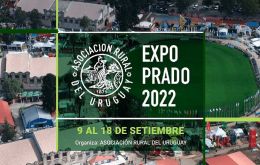
For the first time in almost three years, the International Livestock Exposition will return in a new edition that will be held as it was before the pandemic, without sanitary restrictions, and in the same place: the Rural del Prado in Montevideo.
-
Tuesday, September 10th 2019 - 20:42 UTC
Uruguayan Rural Association Vice-president valued visit from Falklands producers: “They have an impeccable model”

The exchange between agricultural producers in the Falkland Islands and specialists in the Uruguayan sheep sector has become stronger in recent days since a delegation from the islands toured the country visiting sites related to the textile industry.
-
Thursday, September 7th 2017 - 07:37 UTC
Expo-Prado agro-industrial show opens in Montevideo
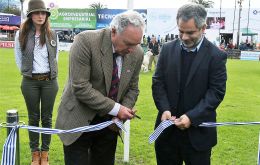
Uruguay's main agricultural, industrial and commercial show, Expo/Prado 2017 opened in Montevideo on Wednesday. The annual event, which this year is international, (it rotates with Argentina's Palermo show) is an opportunity for city people to admire the best cattle, sheep, horses and hogs of the region, and for the farmers a chance to see how much technology has advanced in the last twelve months.
-
Saturday, May 28th 2016 - 07:46 UTC
British Pavilion at Uruguay's main agriculture show, Expo Prado, next September
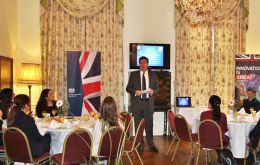
At a breakfast at the residence of Ambassador Ben Lyster-Binns on May 25th, the British Embassy in Montevideo and the Rural Association of Uruguay (ARU) presented the proposal for the British Pavilion at Expo Prado 2016. Representatives of several companies that have ties with the UK, many of which already formed part of the pavilion in 2015 and 2014, attended the event.
-
Friday, December 26th 2014 - 00:59 UTC
Uruguay's Economy Minister skeptical on ARU study
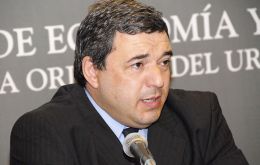
Consumers could have saved as much as US$ 167 million had fuel been imported directly instead of oil being refined by ANCAP. Mario Bergara deems it to be “overblown”
-
Tuesday, August 19th 2014 - 08:57 UTC
Cattle rustling an everyday issue in Uruguay, claim farmers

Cattle rustling in Uruguay has become a daily issue and it's unfair that farmers should be forced to change of activity because “justice is lenient” when and if the perpetrators are caught, claimed the president of Uruguay's Rural Association, ARU, Ruben Echeverria.
-
Thursday, June 9th 2011 - 08:56 UTC
Uruguayan government divided over implementation of a new tax on farmland

The Uruguayan government is trying to decide how to implement a controversial new tax on land holdings involving approximately 60 million dollars per annum and which has exposed deep differences in the ruling coalition, is rejected by farmers and feared by investors.
